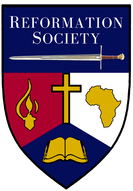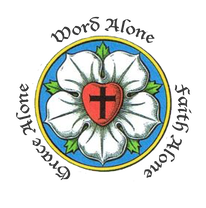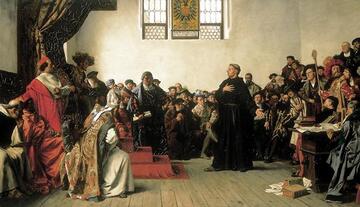 Shortly after Martin Luther was born, the last Muslim stronghold in Spain, Grenada, fell, and the liberation of the Iberian Peninsula was complete. Then Christopher Columbus, sailing west across the Atlantic Ocean, discovered the Americas, the New World. While South Western Europe was celebrating its freedom after 8 centuries of oppression and occupation under Islam, South Eastern Europe was facing the relentless onslaughts of invasion by the Turks. Since the fall of the greatest city in the world at that time, Constantinople, to the Turks, in 1453,with the massacre of all the Christians in that city, the Turks had been an ever-present threat to Christendom, as Europe was then known. THE RENAISSANCE Threatened from the East by a relentless Islamic Jihad, Europe was suffering from the internal corruption of the Renaissance. The Renaissance was a time of material advance and spiritual decline. It led to the rise of absolutism and the loss of the individual rights and representative governments which Christian principles had developed throughout the Middle Ages. Renaissance rulers, eptomised by Machiavelli, rationalized despotism. Machiavelli advised rulers to be careful to maintain public relations through patronage of the arts and conspicuous charities, in order to create popularity, and to mask their hold on power.
0 Comments
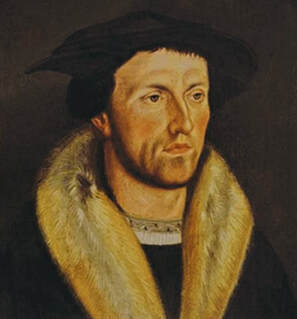 To view a Video presentation on this article, Click Here To listen to an audio presentation on this article, Click Here Bullinger was Zwingli’s successor. For 44 years he pastored Grossmunster in Zurich. Considering the important role he played, and the prodigious quantity of his writings, it is remarkable that Bullinger is one of the least known of the Reformers. CONVERSION Born 18 July 1504, the fifth son of the priest, Henry Bullinger, Heinrich was sent to study at the prestigious Emmerich Seminary on the Rhine, at aged 12. At 15 years old, he enrolled at the University in Cologne, earning his Bachelor of Arts the next year. It was at this time that he was converted to the Reformed faith through studying the Latin and Greek fathers of the Church. 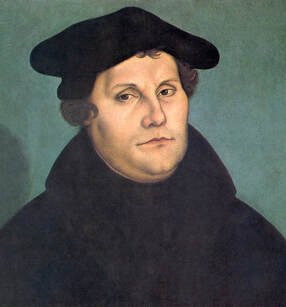
The Controversial
Luther has been alternatively described as the brilliant scholar who rediscovered the central message of the Bible, a prophet like Elijah and John the Baptist to reform God’s people, the liberator who arose to free his people from the oppression of Rome, the last medieval man, and the first modern man. Zwingli described him as: “the Hercules who defeated the tyranny of Rome.” Pope Leo X called Luther: “A wild boar, ravaging his vineyard.” Emperor Charles V described him as: “A demon in the habit of a monk!” The Son Martin Luther was born 10 November 1483 in Eisleben, Saxony. His father, Hans Luder, had worked hard to climb the “social ladder” from his humble peasant origins to become a successful copper mining entrepreneur. Hans married Margaretha Lindemann, the daughter of a prosperous and gifted family that included doctors, lawyers, university professors and politicians. Hans Luder owned several mines and smelters and he became a member of the City Council in Mansfield, where Martin was raised, under the strict discipline typical of that time. 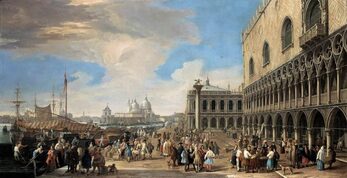 How the Reformation Transformed Economics To view this presentation as a PowerPoint with pictures, click here. To view this presentation as a video, click here. To listen to the audio of this message, click here. Free Enterprise and the Work Ethic Along with some of the greatest art and literature, the Reformation brought about the greatest industrial advances, productivity and prosperity ever experienced in history. Productivity and Prosperity The Protestant work ethic, which helped to bring about great productivity and prosperity in Western Europe and North America, arose mostly through the Protestant Reformers - particularly John Calvin. "The most dynamic businessmen were to be found in Protestant Holland and the most vigorous industrial growth in Protestant England, both states heavily tinctured with Calvinism." (Historian Richard Dunn). 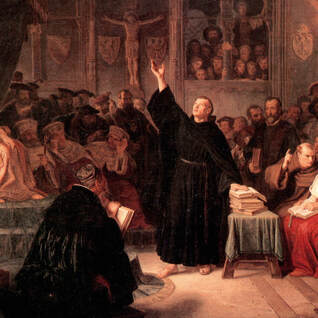 How the Reformation Transformed Education To view this presentation as a PowerPoint with pictures, click here. To view this presentation as a video, click here. To listen to the audio of this message, click here. The Reformation and Education The phenomenon of education for the masses has its roots in Christianity. Christianity is a teaching religion. The greatest universities worldwide were started by Christians in fulfillment of the Great Commission of our Lord Jesus Christ. The Roots of Education for Everyone The roots of education for the common person goes back to the Reformation, and, especially, to John Calvin. "The modern idea of popular education - that is, education for everyone - first arose in Europe during the Protestant Reformation." (Dr. Samuel Blumenfeld - Is Public Education necessary?) 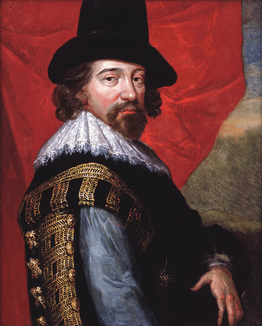 How the Reformation Transformed Science To view this presentation as a PowerPoint with pictures, clickhere. To view this presentation as a video, clickhere. To listen to the audio of this message, clickhere. The Reformation and Science Modern Science as a discipline is a fruit of the Reformation. As Francis Bacon, the father of the scientific method, once put it: "There are two books laid before us to study; to prevent us falling into error; first, the volume of the Scriptures which reveal the will of God; then the volume of the Creatures, which express His power." Most Branches of Science Grew Out of Reformed Teaching Historian Robert G. Frank points out: "The predominant forms of scientific activity can be shown to be a direct outgrowth of a Puritan ideology." 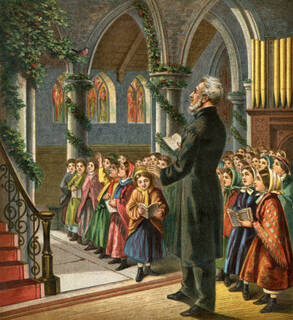 How the Reformation Transformed Worship To view this presentation as a PowerPoint with pictures, click here. To view this presentation as a video, click here. To listen to the audio of this message, click here. Congregational Singing For centuries congregations stood throughout the service. There were no pews or benches. Singing was in Latin by a choir. The focus of the worship service was the Mass which was in Latin. Congregational singing remains one of Martin Luther's most enduring legacies. "Next to the Word of God, music deserves the highest praise," wrote Luther. "I am not of the opinion that all arts are to be cast down and destroyed on account of the Gospel, as some fanatics suggest. On the other hand, I would gladly see all arts, especially music, in the service of Him Who has given and created them." Pastors and Teachers Must Have Skill in Music Luther himself was a well-trained musician with a fine voice. He played the lute, composed intricate hymns and was well acquainted with the work of the leading composers of his day. "I always love music; who so has skill in this art, is of a good temperament, fitted for all things. We must teach music in schools; a schoolmaster ought to have skill in music, or I would not regard him. Neither should we ordain young men as preachers, unless they have been well exercised in music." 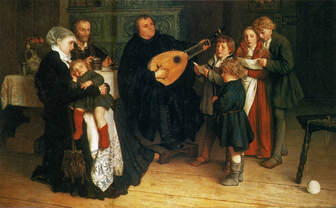 How The Reformation Transformed Marriage and the Family To view this presentation as a PowerPoint, click here. To view this presentation as a video, click here. To listen to the audio of this message, click here. Martin Luther Reformed Marriage and the Family Martin Luther, the German Reformer, is generally remembered as the Theological professor, the Bible translator, the writer, even as the composer of hymns. However, Martin Luther was also a husband and a father of six children. He provided the Church its first and most prominent example of a pastoral family. Marriage Needs Reformation While still a celibate priest, Luther wrote extensively on marriage. He saw marriage as an institution in as much crisis as the church - and no less in need of reform. The Family is the Basic Building Block of Society Martin Luther was a leading defender of the dignity of women and the foundational importance of marriage. Luther placed the home "at the centre of the universe." His teaching on marriage and the family (and his personal example) were so radical and so long-lasting that it profoundly and permanently altered the home. If his innovations don't seem so radical to us, it is because of his success in establishing these principles as Christian ideals. 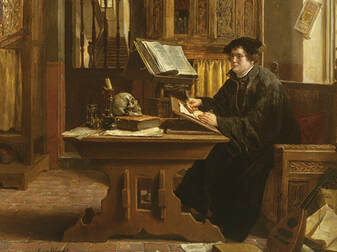 In expounding Daniel 9, Martin Luther noted that among others, the prophet Daniel was talking about the Muslim Turks, who at that time were invading Europe: "In the latter part of their reign, when rebels have become completely wicked, a stern-faced king, a master of intrigue will arise. He will become very strong, but not by his own power. He will cause astounding devastation… He will cause deceit to prosper and he will consider himself superior. When they feel secure, he will destroy many and take his stand against the Prince of princes. Yet he will be destroyed, but not by human power." Daniel 9:23-25 Luther wrote that the "two regimes, that of the Pope and that of the Turk, are… antichrist." John Calvin in a sermon on Deuteronomy 18:15 maintained that Muhammad was one of "the two horns of antichrist." 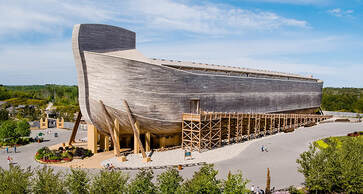 The Creation Museum near Cincinnati in the United States is absolutely magnificent. I spent two days exploring, examining and experiencing the Creation Museum. It was not nearly enough time. I look forward to returning again and again. As one who has visited museums all over the world, I must rate the Creation Museum as one of the very best in the world. The Creation Museum is God-honouring, Bible-based, and Christ-centred. It is an experience no visitor can ever forget. The Creation Museum is effective both in education and evangelism. Not only is the museum extremely well thought out and laid out, but it is inspired and inspiring. The Creation Museum is a modern equivalent of nailing of the ’95 Theses on the church door in Wittenberg. Future generations may look back at the opening of the Creation Museum as significant an event for Reformation in our day as Luther’s bold protest was in the 16th Century. |
History ArticlesCategories
All
Archives
May 2023
|
- Home
-
History Articles
- History Articles
- All Categories
- Character Studies
- Greatest Century of Missions
- Greatest Century of Reformation
- Reformation In Bohemia
- Reformation In England
- Reformation In France
- Reformation In Geneva
- Reformation In Germany
- Reformation In Italy
- Reformation In Scotland
- Reformation in Switzerland
- Victorious Christians
- Contemporary Articles
- Resources
- Contact
- Donate
|
The Reformation Society
PO Box 74, Newlands, 7725, South Africa Tel : (021) 689-4480 Email: [email protected] Copyright © 2022 ReformationSA.org. All rights reserved |
- Home
-
History Articles
- History Articles
- All Categories
- Character Studies
- Greatest Century of Missions
- Greatest Century of Reformation
- Reformation In Bohemia
- Reformation In England
- Reformation In France
- Reformation In Geneva
- Reformation In Germany
- Reformation In Italy
- Reformation In Scotland
- Reformation in Switzerland
- Victorious Christians
- Contemporary Articles
- Resources
- Contact
- Donate
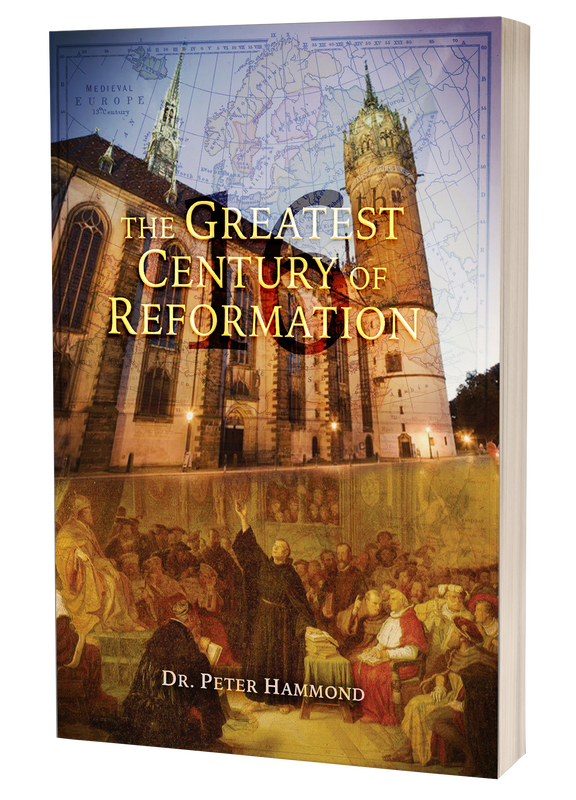
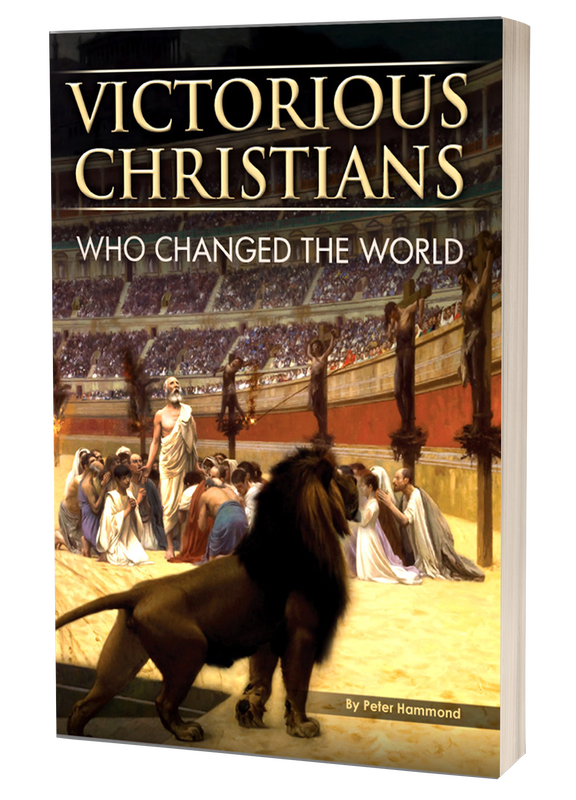
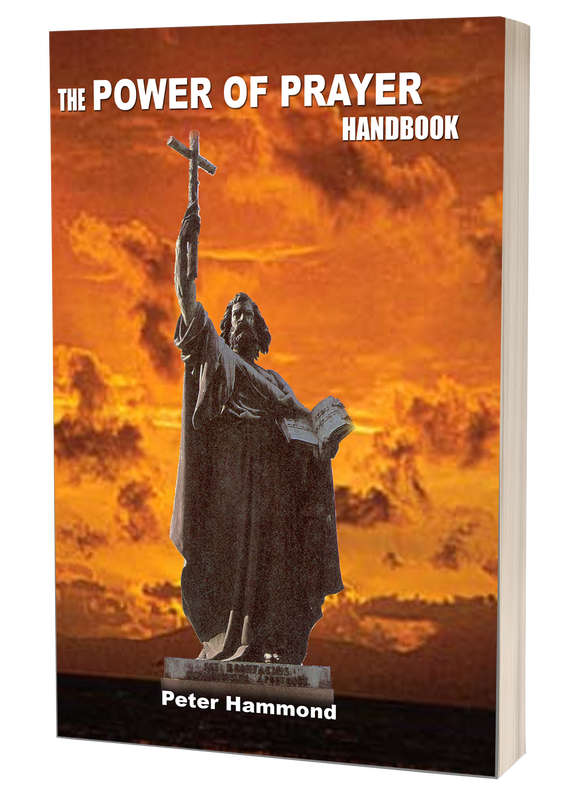
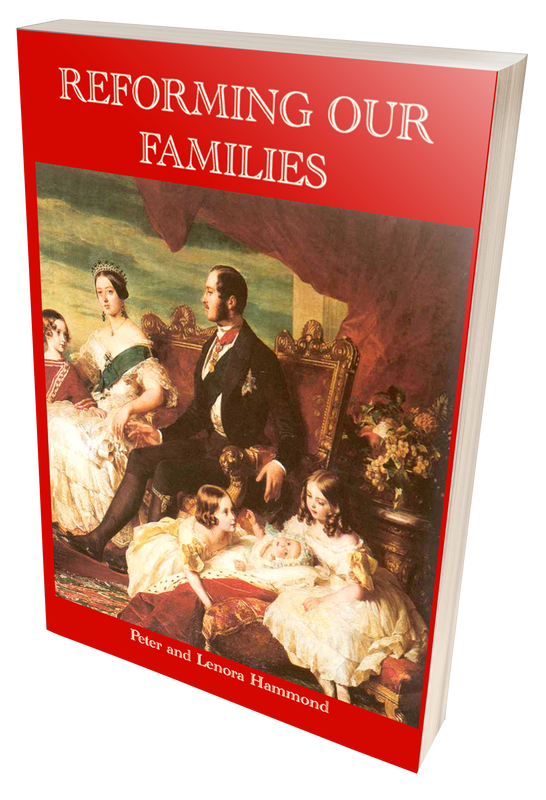
 RSS Feed
RSS Feed
